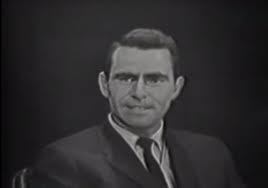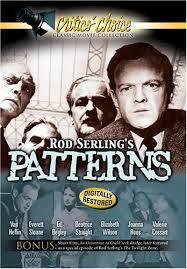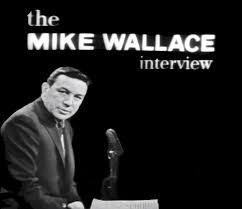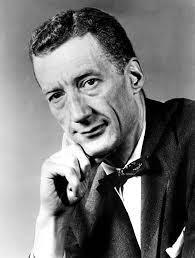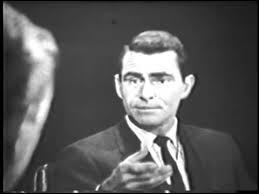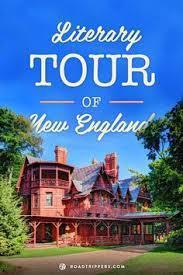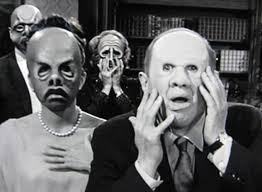To Entertain or to Illuminate, That Is (Not) the Question . . .
On September 22, 1959, on the eve of the premiere of the new television series The Twilight Zone, Rod Serling sat down for an interview with Mike Wallace.�� Serling, by that time already considered one of television’s brightest writing stars, had amassed a formidable resume.�� He was known throughout the industry as television’s “angry young man” due to his ardent and very vocal criticism of the censorship so rampant in the medium at that time.
Determined to produce gritty, realistic scripts that dealt with injustice, inequality, and greed, Serling wrote for Kraft Television Theater, Playhouse 90, and other venues that featured live TV dramas of the day.�� His breakthrough script, “Patterns,” which aired in February 1955, launched him into orbit, and by the time of the Wallace interview, Serling, already a winner of three Emmy awards, was an established industry heavyweight.
At the start of the interview, Wallace credits Serling as the accomplished writer he is; he discusses Serling’s rise within the industry, and his ongoing battles against sponsor-mandated censorship.�� About midway through the conversation, the discussion takes a turn . . .
“You’ve got a new series coming up called The Twilight Zone,” Wallace says, and simply from his tone of voice, his delivery, one can sense Wallace’s disappointment.�� After all, in the interview, Serling himself admits to be being “tired,” and that he doesn’t “want to fight anymore”–with corporate sponsors and their dictates on what can and cannot be included in his scripts.�� The Twilight Zone, a short, half-hour sci-fi and fantasy excursion, was deemed by many, Wallace among them, as a sellout on the part of one of TV’s most serious and hard-hitting writers.
Wallace suggests the episodes will be “potboilers,” which Serling rejects, stating that he believes the shows will be “high-quality . . . extremely polished films.”
Undeterred, Wallace then says, “For the time being and for the foreseeable future [since Serling would be so focused on The Twilight Zone going forward], you’ve given up on writing anything important for television, right?”
Even here, Wallace is not finished. He quotes TV producer Herbert Brodkin as saying, “Rod is either going to stay commercial or become a discerning artist, but not both.”
To which Serling replies, “I presume Herb means that inherently you cannot be commercial and artistic.�� You cannot be commercial and quality.�� You cannot be commercial concurrent with having a preoccupation with the level of storytelling that you want to achieve.�� And this I have to reject. . . . I don’t think calling something commercial tags it with a kind of an odious suggestion that it stinks, that it’s something raunchy to be ashamed of. . . . I think innate in what Herb says is the suggestion made by many people that you can’t have public acceptance and still be artistic.�� And, as I said, I have to reject that.”
***************
When I was an English major in college, there was a fellow student, named John, who shared several classes with me.�� I’ve blogged about John before.�� In addition to wanting to create something new, uniquely his own, John also wanted to create something artistic, arcane, even inaccessible.
“If just anyone can understand it,” he said once, “then I’ve failed.�� I’m not writing for the layperson.�� I’m writing for the select few.�� If John Q. Public ‘gets’ my story, then what’s the point?�� Anyone can write a story like that!”
I understood his sentiment–up to a point.�� All writers, all artists want to say something, to have one of their stories or songs or paintings or performances move an audience to tears, open eyes, create dialogue, and promote new viewpoints.�� We all want our work to matter.
But I strongly disagreed with his assertion that a work is somehow elevated if it’s nearly incomprehensible; that a story can only have merit if it needs a literature professor to explain its themes, ideas, and structure to a room full of confused and bored students.
Sure, I want my stories to make people to stop, think, perhaps question things they hadn’t even considered before, or, if they had, maybe the story enables them to see something familiar through a different lens, changing their perspective, granting them a peek on the other side of the mountain, as it were.�� But to accomplish that, I don’t believe I, or any other writer, needs to create a piece that requires a literary road map through which to navigate.
Certainly it is my hope that The Eye-Dancers will prompt readers to step back and think about the very nature of what we term “reality”; to consider the mysterious, even seemingly otherworldly psychic connection two strangers can share; and to wonder at the possibility that we, each of us, are just one piece of an infinite puzzle that includes countless variants of ourselves scattered throughout worlds that parallel our own like invisible, silent shadows.
But more than this, it is my hope that readers will relate to the characters, cheer them on, root for them, get swept up in the flow and momentum of the story, and have fun as they read.
When I explained this to John, when I told him I wanted a wide swath of people to enjoy my stories, not just a select few, he simply shook his head and gave me a look that I could only interpret as pure pity.
************
The Twilight Zone remained on the air for five unforgettable seasons; and those “potboiler” episodes, those flights of fancy that delved into the genres of science fiction and fantasy, those “commercial” attempts at expression have endured and prospered.�� It can be argued, indeed, that The Twilight Zone is more appreciated, more loved, more respected now, on the precipice of 2015, than it was when it actually ran.
Serling himself expressed a possible reason for the show’s ongoing popularity.�� “On The Twilight Zone,” he once said, “I knew that I could get away with Martians saying things that Republicans and Democrats couldn’t.”�� He was able, in other words, to utilize imaginative storytelling, plots that took viewers by the hand and led them to strange, often frightening new worlds, to comment on and critique the social ills, prejudices, and personal crises occurring in our own, very real lives.
The Twilight Zone accomplished Serling’s vision and proved beyond a doubt that a story, a novel, a piece of art, does not need to choose between entertaining and illuminating its audience.
The great pieces, the truly memorable works that hold up through the dust and years and passing of decades and centuries are the ones that accomplish both.
Thanks so much for reading!
–Mike


